Cameo Sues OpenAI Over Sora 2's 'Cameo' Feature in Trademark Infringement Battle
7 Sources
7 Sources
[1]
OpenAI Sued Over Sora 2 Feature by Cameo App
The celebrity app company says OpenAI's video generator feature will "mislead the public." The company behind the Cameo app -- which lets you pay to have celebrities create a personalized video message for you -- is suing OpenAI, alleging that a video generation feature it rolled out in late September will create brand confusion and mislead the public. The feature, called Cameos, is part of a new set of features that OpenAI rolled out for its videogenerator tool Sora2. Cameos allows you to insert yourself or others into videos alongside celebrities and historical figures, such as OpenAI's CEO Sam Altman, Muhammad Ali and Abraham Lincoln. Since the Sora 2 launch, OpenAI has made tweaks to who can be featured in Cameos and how it can be used. Don't miss any of our unbiased tech content and lab-based reviews. Add CNET as a preferred Google source. Cameo says it was in discussions with OpenAI about the issue before it filed the lawsuit. "While we attempted to resolve this matter with OpenAI amicably, they refused to stop using the Cameo name for their new Sora feature," Cameo CEO and co-founder Steven Galanis said in a statement. "To protect fans, talent and the integrity of our marketplace, we felt that we unfortunately had no other option but to bring this lawsuit." The lawsuit alleges, "trademark infringement, trademark dilution and unfair competition under federal law and applicable state laws." In its statement, Cameo also claims the Cameos feature will create "consumer misunderstanding" and, "mislead the public into believing the products or services are associated with or endorsed by Cameo." "We're reviewing the complaint, but we disagree that anyone can claim exclusive ownership over the word 'cameo,'" an OpenAI spokesperson told CNET. (Disclosure: Ziff Davis, CNET's parent company, in April filed a lawsuit against OpenAI, alleging it infringed Ziff Davis copyrights in training and operating its AI systems.)
[2]
Cameo App Sues OpenAI for 'Trampling' Its IP Rights With Sora's Cameo Feature
Emily is an experienced reporter who covers cutting-edge tech, from AI and EVs to brain implants. She stays grounded by hiking and playing guitar. Don't miss out on our latest stories. Add PCMag as a preferred source on Google. OpenAI is facing yet another lawsuit, this time from the Cameo app, which accuses the AI company of infringing on its trademark with the Cameo feature inside the Sora video generator. Sora 2 debuted as an invite-only iOS app last month with a feature called Cameo, which allows users to upload their face and voice to the app and create AI-generated videos of themselves. More recently, it added the option to create character Cameos, which generate clips of "the characters in your life and imagination," OpenAI says. The Cameo app argues that using the Cameo moniker inside Sora is "a blatant disregard for the obvious confusion it would create." The Cameo app allows people to purchase personal messages from celebrities, influencers, and other public figures. With the launch of Cameo on Sora, however, some of those celebs -- including Mark Cuban, Ricky Berwick, and Jake Paul -- have opened their Sora Cameos, allowing anyone on Sora to generate their own videos featuring them. "Users seeking a personalized celebrity video now have a choice -- use [the] Cameo service to book talent and receive an authentic, custom video prepared by that celebrity, or use Sora's 'Cameo' service to create an extremely realistic AI-generated video featuring a celebrity's likeness," Cameo says. "Thus, through its infringing use of [Cameo's] trademark, [OpenAI] is misdirecting users from [the] Cameo-branded service for authentic, personalized Cameo videos to [its] AI-powered 'Cameo' service. And users are sharing videos from both [Cameo] and [OpenAI's] respective services on the same social media platforms in massive numbers. "When naming its new service, OpenAI had a multitude of options to choose from," Cameo argues. But "in its rush to dominate new markets, [OpenAI] has once again trampled the intellectual property rights of others." Cameo alleges it's all a money grab for OpenAI, which is struggling to secure the necessary funds to purchase GPUs for its data centers. CEO Sam Altman admitted Sora 2 is intended to make people "smile, and hopefully make some money given all that compute need." Sora 2's launch immediately ruffled Hollywood's feathers after agents, studios, and celebrities caught it creating videos featuring copyrighted characters. In response, Altman said the company intends to give "rightsholders more granular control over generation of characters, similar to the opt-in model for likeness but with additional controls." "We are going to have to somehow make money for video generation," Altman wrote in a blog post. "People are generating much more than we expected per user, and a lot of videos are being generated for very small audiences. We are going to try sharing some of this revenue with rightsholders who want their characters generated by users." Altman says Sora offers a "new kind of 'interactive fan fiction.'" Cameo calls it "trademark infringement, trademark dilution, and unfair competition...likely to cause consumer misunderstanding, dilute the brand's identity, and mislead the public," a spokesperson tells us. The public is also uneasy about Sora's ability to spread misinformation, according to a new study from AI content detection company Copyleaks. Of the 4,000 people it surveyed, 83% expressed concern about Sora's ability to create fake or misleading content. More than half (53%) were extremely concerned, and 30% say they are somewhat concerned. Just 3% responded "not very or not at all concerned." The majority of respondents (61%) say AI-generated videos should clearly label themselves as such to distinguish from authentic footage. "These findings reinforce what our research uncovered firsthand: AI video tools are already being used to distort reality, and the public is both aware and alarmed," Copyleaks says. "Sora is just the beginning." Disclosure: Ziff Davis, PCMag's parent company, filed a lawsuit against OpenAI in April 2025, alleging it infringed Ziff Davis copyrights in training and operating its AI systems.
[3]
Sora 2 is facing new legal issues -- adding to the list of problems for the video app
OpenAI's latest AI video model, Sora 2, has had a hard time since it launched. It has faced legal problems, complaints from celebrities, and now, has been hit by a copyright infringement strike by a rival. Cameo, an app where the public can pay for video messages from celebrities, is suing OpenAI in a California federal court, accusing the company of violating its trademark rights. According to Reuters, the complaint focuses on OpenAI's use of a new feature also known as Cameo. This allows users to make and share their virtual likeness on Sora. Cameo (the company) claims that by using this name, OpenAI is diluting both its branding and name. In response, an OpenAI spokesperson said the company is reviewing the complaint but "disagrees that anyone can claim exclusive ownership over the word cameo". Cameo goes on to say that, not only is OpenAI using their branding in the name of the Cameo feature, but also threatening their business model in the ability to create realistic videos of celebrities using the Sora feature. "Users seeking a personalized celebrity video now have a choice - use Plaintiff's CAMEO service to book talent and receive an authentic, custom video prepared by that celebrity, or use Sora's 'Cameo' service to create an extremely realistic AI-generated video featuring a celebrity's likeness," the lawsuit said. This isn't the first legal problem OpenAI has faced with Sora 2. The company has already made multiple public apologies, changed safeguarding rules, and reworked how the model addresses copyright in relation to complaints. These were mostly focused on Sora 2's use of celebrity likeness. In the early days of the app release, users created disrespectful recreations of dead celebrities, and despite trying to input rules where celebrities had to opt in for their likeness to be used, these safeguards weren't always working. Actor Bryan Cranston, along with a major board for filmmakers and actors, made a complaint to OpenAI about the effectiveness of the model, leading to a public apology from OpenAI and Sam Altman, the company's CEO, with a promise to work on improving this side of Sora 2. In a recent post on X, Altman addressed the company's future plans to add age-gating features on its products. These, in theory, would allow users to generate their own 18+ creations. While it isn't yet clear if these would extend to Sora 2 as well, it could be a further issue for the company's video model.
[4]
Cameo sues OpenAI for trademark infringement over new AI-generated celebrity video app
Cameo, the Chicago-based celebrity video messaging website, has become the latest company to sue OpenAI, alleging trademark infringement for the technology giant's new service that makes AI-generated celebrity videos under the same Cameo name. The lawsuit, filed on Oct. 28 in a California federal court, said the recent rollout of the "Cameo" feature as part of Sora, OpenAI's video generation app, has already created growing "consumer confusion" with widely shared videos featuring celebrity likenesses -- often in unusual settings. For Cameo the company, which created its own niche selling personalized videos from actual celebrities, the use of its trademarked brand by OpenAI for a similar purpose represents a threat to its business model. "It's very clear that they're trying to have this new emerging technology cause confusion, and for us, it can be existential," Steven Galanis, 37, Cameo's co-founder and CEO, told the Tribune. "It could destroy our business." OpenAI, the privately held San Francisco-based technology company behind ChatGPT and a leader in the exploding artificial intelligence space, issued an emailed statement in response to the lawsuit Wednesday. "We're reviewing the complaint, but we disagree that anyone can claim exclusive ownership over the word 'cameo,'" an OpenAI spokesperson said. Launched in September, the Cameo feature enables users of OpenAI's new Sora app to incorporate celebrity likenesses into their own AI-generated text-to-video creations. Celebrities such as Jake Paul and Mark Cuban have "opened" up their likenesses to use for Cameo videos on the Sora platform, many of which have already been widely shared on social media. Others are using deceased celebrities to make videos, with everyone from children's TV host Fred Rogers to PBS painting guru Bob Ross popping up in new Sora Cameos online. The creativity often runs amuck, with one AI-generated "Mister Rogers" participating in a "Jackass" stunt where he rides a scooter off a pier into a lake, drenching his signature red cardigan. The proliferation of TikTok-style Sora Cameo videos on social media is no joke to Galanis, however, especially as the service gains traction with more participating living celebrities. "Imagine if you Google 'Cameo,' and instead of seeing videos from Snoop Dogg or Magic Johnson that are super heartfelt and authentic, you're seeing AI slop like Jake Paul boxing Mark Cuban on Mars," Galanis said. "I don't have a problem with the technology. I have a problem with what they're calling it." The search engine issue could become even more acute with OpenAI's unveiling last week of ChatGPT Atlas, a new web browser built to compete with Google Chrome. Launched in 2017, Cameo pioneered an online platform for fans to buy personalized video greetings from an eclectic group of stars, rocketing to unicorn status during the pandemic when lockdowns and social distancing turned everything from funeral services to bris ceremonies into virtual events. The current Cameo talent roster features thousands of celebrities, including actors, athletes, comedians, musicians and social media influencers, ranging from onetime heartthrob singer Engelbert Humperdinck to recently pardoned George Santos, a former congressman. Booming during the pandemic, Cameo struggled in the post-pandemic landscape, losing money and slashing costs through three rounds of layoffs during 2022 and 2023 that reduced the headcount from 347 employees in 38 states and 13 countries down to skeleton staff of 32 workers. But business has been picking up, with the company returning to profitability and rebuilding its workforce. In February, Cameo offered its Chicago-area employees a $10,000 raise to return from their remote locations and work full time at the company's Fulton Market office. Since then, the Chicago office has grown from 26 to 40 employees, Galanis said. The company now has about 60 employees overall. Suing OpenAI, which is valued at $500 billion and whose ChatGPT app now has over 800 million weekly active users, was not a decision that Galanis took lightly. But with his own company's future at stake, he felt litigation was the only option after OpenAI "refused to stop using the Cameo name" during an attempt to resolve the situation amicably. The trademark lawsuit is seeking OpenAI be enjoined from using the words "Cameo" or "Cameos" in connection with its services, as well as undisclosed damages. 2025 Chicago Tribune. Distributed by Tribune Content Agency, LLC.
[5]
Cameo CEO: Sora 2 AI Slop Poses an 'Existential' Threat to Our Business
Could AI-generated videos of celebrities upend the creator economy's old guard? That's the question posed in a recent lawsuit filed by video messaging app Cameo against OpenAI -- the latest legal action thrown at the AI juggernaut this year. The newest version of OpenAI's Sora 2 video-generation app includes a feature that allows users to generate synthetic video of themselves on demand. To promote the feature, celebrity likenesses, such as investor Mark Cuban and the creator Jake Paul, are already available on the app, enabling select Sora users to flood their friends' inboxes with personalized greetings from the rich and famous. For the company Cameo, Sora 2's latest feature is particularly grating -- largely because it's also called Cameo, says Steve Galanis, CEO of the creator economy app, founded in Chicago in 2017. "I'm not concerned about competition. If that model beats our model, I don't like to lose, but that's okay," Galanis tells Inc. "What we're very specifically fighting is calling it what they did. So forget the technology, forget the business model." The complaint, filed Tuesday in a California Federal District Court, says that by using the same name for its new feature, Sora 2 poses an "imminent, existential, and potentially lethal threat" to Cameo's business. Though Sora 2's Cameo is only in beta and available via invite to users in select markets, synthetic celebrity videos have swarmed social media since the app's update on September 30. The wave of fake videos has ensnared Galanis' company in the kind of confusion that's only become more common in the age of deepfakes and online deception. He says that customer service queries for Sora 2's Cameo that users have entered into ChatGPT serve links back to the original Cameo. Sora 2's update also has social media users falsely attributing the synthetic celebrity videos to Cameo, Galanis claims. "From a customer confusion perspective, as these videos are coming out, people are tagging Cameo on TikTok and Instagram with these Sora videos." This problem will only compound if the product is rolled globally, the Cameo chief argues. "Millions of AI slop videos coming over our search results could be existential to our business." The complaint seeks an unspecified amount of injunctive monetary relief, and alleges a variety of offenses, including trademark dilution, trademark infringement, and unfair competition. Galanis says that Cameo sent OpenAI a cease and desist letter earlier this month, but Sora's celebrity feature was still released with the same name. OpenAI CEO Sam Altman has steered his company to titanic prominence in the field as the company reportedly gears up for an IPO at a $1 trillion valuation. Altman wrote on his personal blog earlier this month on the heels of the Sora update: "We will make some good decisions and some missteps, but we will take feedback and try to fix the missteps very quickly." An OpenAI spokesperson tells Inc: "We're reviewing the complaint, but we disagree that anyone can claim exclusive ownership over the word 'cameo.'" "They've been a bad actor here," Galanis says. "The genie is not going back in the bottle, these technologies are here to stay. But I do think that when they're rolled out in a really disgusting way like that, it turns a lot of people off," Galanis tells Inc. Ironically, Galanis says he's fed the complaint into OpenAI's flagship product ChatGPT to assess the strength of Cameo's case. "It's an interesting read," he says with a smirk.
[6]
Cameo Sues OpenAI Over Trademark Infringement
Video-sharing platform Cameo has sued OpenAI for trademark infringement after the latter released an AI-driven video generator app with the same name. The lawsuit claims that OpenAI's Cameo app infringes on Cameo's registered trademark, creates the false impression of a connection between the two, and leads to dilution of the brand. The platform is seeking a permanent injunction prohibiting OpenAI from using the word "Cameo," as well as monetary damages and profits generated from OpenAI's use of the trademarked phrase. Cameo is a platform that allows people to pay celebrities to record personalised messages, such as birthday greetings or other wishes. OpenAI released the latest version of Sora on September 30 this year as a "social app" for iOS, where users can share AI-generated short videos with each other. It also includes a feature called "cameos," where users can jump into someone else's videos after letting the app capture their likeness. A number of celebrities have joined this platform and even granted permission to other users to use their likenesses, including social media personality Jake Paul and entrepreneur Mark Cuban. Crucially, influencer Ricky Berwick and streamer Amouranth, both long-time members of Cameo's celebrity roster, have also joined Sora and "opened their Cameos" in a similar fashion. The complaint alleges that OpenAI's use of "Cameo" is likely to confuse the public about the source and connection between the two companies' products and services. The public will probably believe that OpenAI has endorsed or is connected to Cameo, or vice versa. It states that OpenAI has infringed Cameo's federally registered trademarks, violating federal trademark law. Cameo claims that these violations have irreparably damaged the company, while OpenAI has earned substantial revenues and profits from this unlawful conduct. Cameo asserts that it is entitled to these profits and has also suffered damages. The complaint adds that OpenAI has diluted and will continue to dilute and tarnish Cameo's famous trademark by causing consumers to associate it with OpenAI, OpenAI's questionable business practices, and "AI slop." As a direct result, Cameo argues, OpenAI has unlawfully acquired an unfair competitive advantage and engaged in wrongful business conduct to its monetary advantage and Cameo's detriment. Cameo is seeking injunctive and equitable relief, damages, costs, disgorgement of OpenAI's ill-gotten gains, and, if appropriate, enhanced damages, punitive damages, and reasonable legal fees. OpenAI, along with other AI companies, has been facing numerous copyright lawsuits worldwide. Notable cases include Getty Images v. Stability AI and The New York Times v. OpenAI, as well as another lawsuit in India from news agency Asian News International (ANI). The company is also facing similar lawsuits from organizations such as the Center for Investigative Reporting and numerous writers and publishers. There has been a recent trend of celebrities approaching courts to protect their personality rights. This includes singer Asha Bhosle, director Karan Johar, and actors Aishwarya Rai and Abhishek Bachchan. The growing popularity of easily accessible image and video generation AI models, often indistinguishable from reality, has at least partly fueled this trend. Martin Luther King Jr.'s estate recently asked OpenAI to restrict Sora from creating the likeness of the late American civil rights leader after numerous users used the AI platform to create disrespectful videos of him. OpenAI acknowledged the issue and paused all creations involving the activist. Contemporary AI video generators make it extremely easy to puppeteer public figures into saying or doing things they otherwise never would. Apart from threatening Cameo's business model, OpenAI's "Cameos" feature takes away a significant amount of control from the subjects of these videos. Celebrities on Cameo charge a fee to create videos that fans request. While there are plenty of examples of fans using the platform to ask celebrities for ridiculous or humorous content, these actors always have the option to say no. But with Sora, that option is no longer there. By opening up your "Cameo" for others to use, you are also opening your likeness up for potential abuse. Admittedly, OpenAI has promised to allow subjects greater control over how their likeness is used. However, AI chatbots are prone to jailbreaking, bias, and various workarounds, it may not take long before examples emerge of people misusing these AI avatars.
[7]
OpenAI sued for trademark infringement over Sora's 'Cameo' feature
(Reuters) -The maker of celebrity video platform Cameo sued OpenAI in a California federal court on Tuesday, arguing that the new "Cameo" feature of OpenAI's Sora video generation app violates its trademark rights. Cameo said in the complaint that OpenAI's Cameo, which allows users to create and share their virtual likenesses on Sora, is likely to cause consumer confusion and dilute its brand. Spokespeople for OpenAI did not immediately respond to a request for comment on the complaint. Cameo CEO Steven Galanis said in a statement that the company had tried to resolve the dispute "amicably" but OpenAI refused to stop using the Cameo name. Cameo, founded in 2017, allows users to hire celebrities to appear in short, personalized videos. Artificial intelligence giant OpenAI's Sora, launched as a standalone app on September 30, lets users create and share AI-generated videos. OpenAI calls Sora users' likenesses on the app "Cameos." Cameo said OpenAI chose the name "in blatant disregard for the obvious confusion it would create." Cameo also said that Sora allows users to create videos with celebrity "Cameos" including entrepreneur Mark Cuban and boxer and influencer Jake Paul, putting the AI giant in direct competition with Cameo's platform. "Users seeking a personalized celebrity video now have a choice--use Plaintiff's CAMEO service to book talent and receive an authentic, custom video prepared by that celebrity, or use Sora's 'Cameo' service to create an extremely realistic AI-generated video featuring a celebrity's likeness," the lawsuit said. Cameo requested an unspecified amount of monetary damages and a court order blocking OpenAI from using the "Cameo" name. (Reporting by Blake Brittain in Washington; Editing by Sam Holmes)
Share
Share
Copy Link
Celebrity video messaging app Cameo has filed a trademark infringement lawsuit against OpenAI, claiming the AI company's new 'Cameo' feature in Sora 2 creates consumer confusion and threatens their business model. The legal battle highlights growing tensions between traditional platforms and AI-generated content services.
Legal Battle Over Celebrity Video Services
Cameo, the Chicago-based celebrity video messaging platform, has filed a trademark infringement lawsuit against OpenAI in California federal court, alleging that the AI company's new "Cameo" feature within Sora 2 violates its trademark rights and creates consumer confusion
1
. The lawsuit, filed on October 28, seeks to prevent OpenAI from using the "Cameo" or "Cameos" name in connection with its services and demands unspecified damages4
.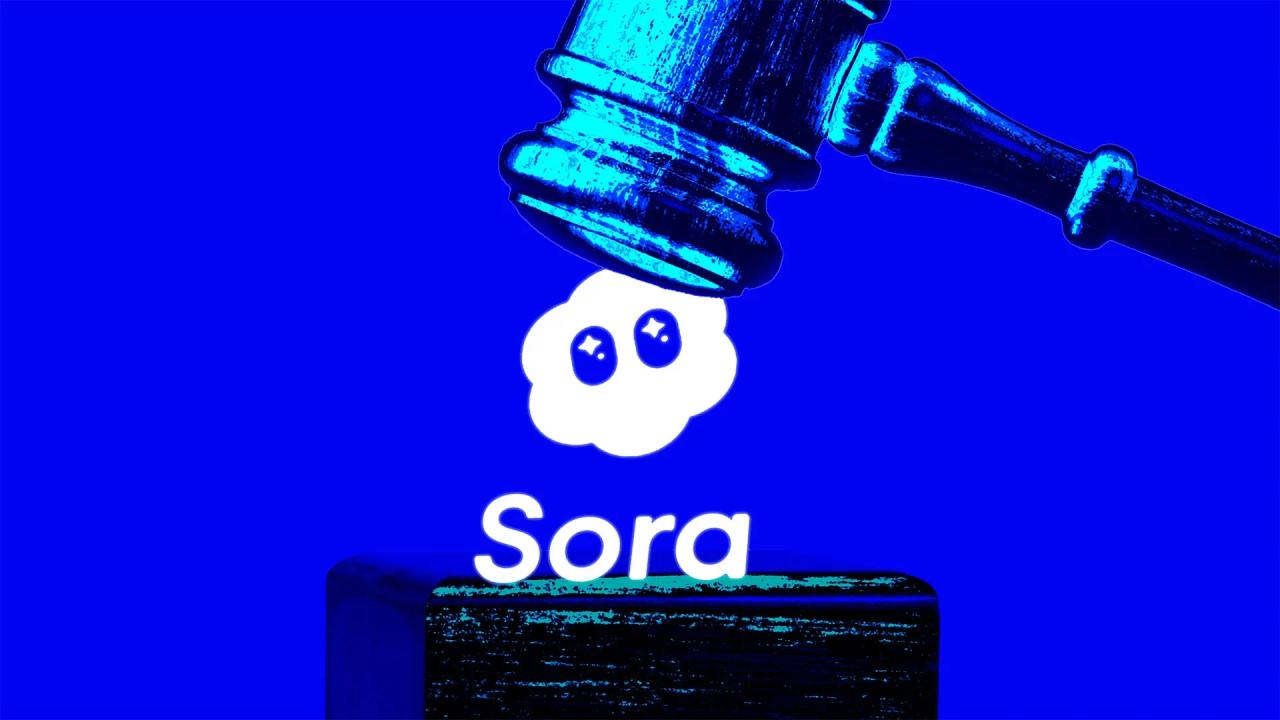
Source: Inc.
Cameo CEO and co-founder Steven Galanis described the situation as potentially "existential" for his company, stating that "millions of AI slop videos coming over our search results could be existential to our business"
5
. The company attempted to resolve the matter amicably before filing the lawsuit, but OpenAI "refused to stop using the Cameo name for their new Sora feature," according to Galanis1
.Competing Celebrity Video Models
The conflict centers on two fundamentally different approaches to celebrity video content. Cameo's original platform, launched in 2017, allows fans to purchase personalized video messages from actual celebrities, creating authentic content directly from stars like Snoop Dogg and Magic Johnson
4
. The platform pioneered this niche market and achieved unicorn status during the pandemic when virtual events became commonplace.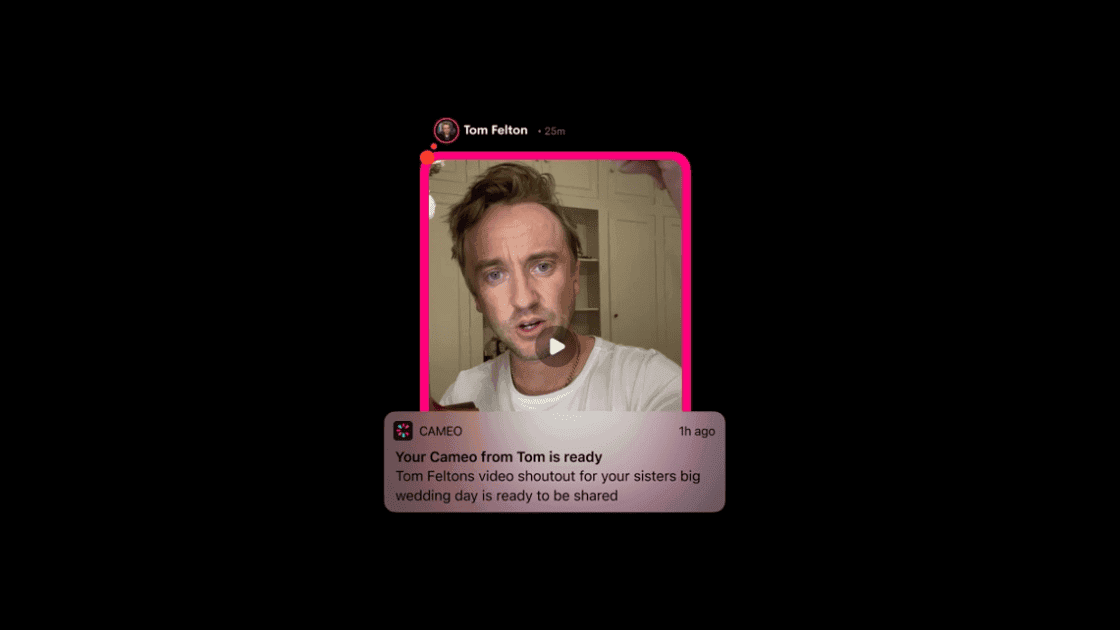
Source: PC Magazine
In contrast, OpenAI's Sora 2 "Cameo" feature enables users to create AI-generated videos featuring celebrity likenesses, including both living celebrities like Mark Cuban and Jake Paul, and deceased figures such as Fred Rogers and Bob Ross
2
. The lawsuit notes that "users seeking a personalized celebrity video now have a choice - use [Cameo's] service to book talent and receive an authentic, custom video prepared by that celebrity, or use Sora's 'Cameo' service to create an extremely realistic AI-generated video featuring a celebrity's likeness"2
.
Source: Tom's Guide
Consumer Confusion and Brand Dilution
Cameo alleges that OpenAI's use of the same name has already created significant consumer confusion across social media platforms. Galanis reported that "people are tagging Cameo on TikTok and Instagram with these Sora videos," and customer service queries for Sora 2's feature entered into ChatGPT are serving links back to the original Cameo platform
5
.The lawsuit claims this confusion threatens to "mislead the public into believing the products or services are associated with or endorsed by Cameo"
1
. Some AI-generated content has been particularly controversial, including synthetic videos of deceased children's television host Fred Rogers participating in inappropriate scenarios4
.Related Stories
OpenAI's Response and Ongoing Challenges
OpenAI has disputed Cameo's claims, with a spokesperson stating that the company "disagrees that anyone can claim exclusive ownership over the word 'cameo'"
1
. However, this lawsuit represents just the latest legal challenge facing Sora 2 since its September launch3
.The AI video generator has faced multiple complaints from celebrities and entertainment industry representatives regarding unauthorized use of their likenesses, prompting public apologies from CEO Sam Altman and promises to improve safeguarding measures
3
. Altman has acknowledged the revenue potential of the service, stating that Sora 2 is intended to "make people smile, and hopefully make some money given all that compute need"2
.References
Summarized by
Navi
[3]
[4]
Related Stories
Federal court blocks OpenAI from using 'Cameo' name in landmark trademark lawsuit ruling
18 Feb 2026•Policy and Regulation
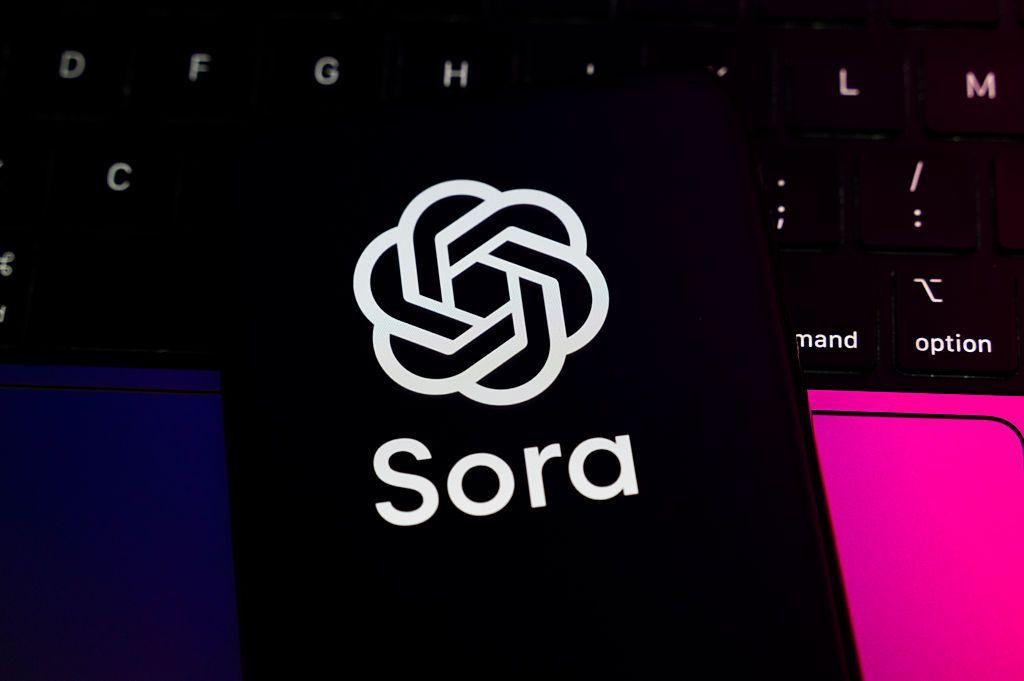
OpenAI's Sora 2 Faces Copyright Backlash, Prompts Policy Shift
03 Oct 2025•Policy and Regulation
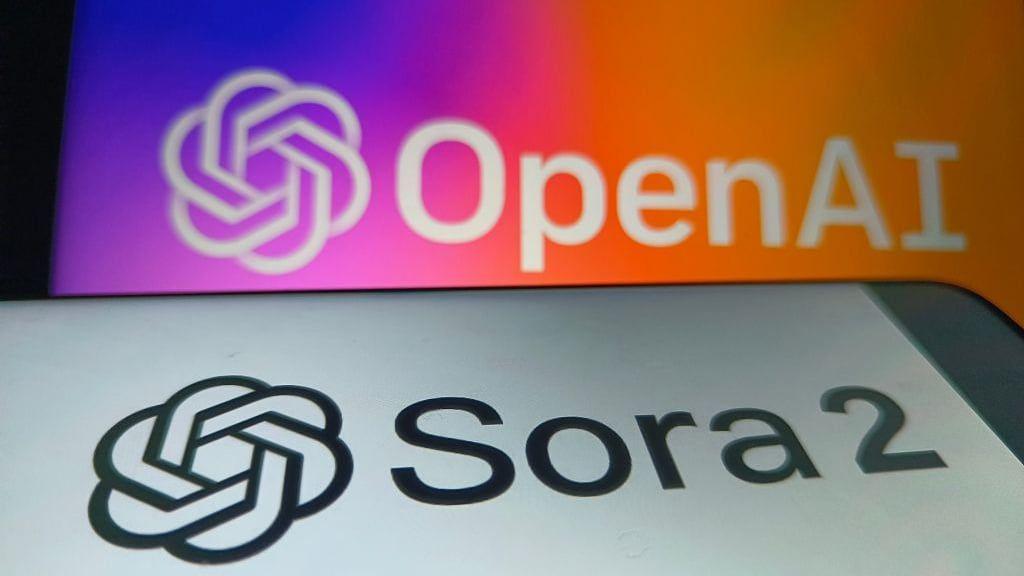
OpenAI's Sora Faces Backlash Over Celebrity Deepfakes and Historical Figure Depictions
17 Oct 2025•Technology
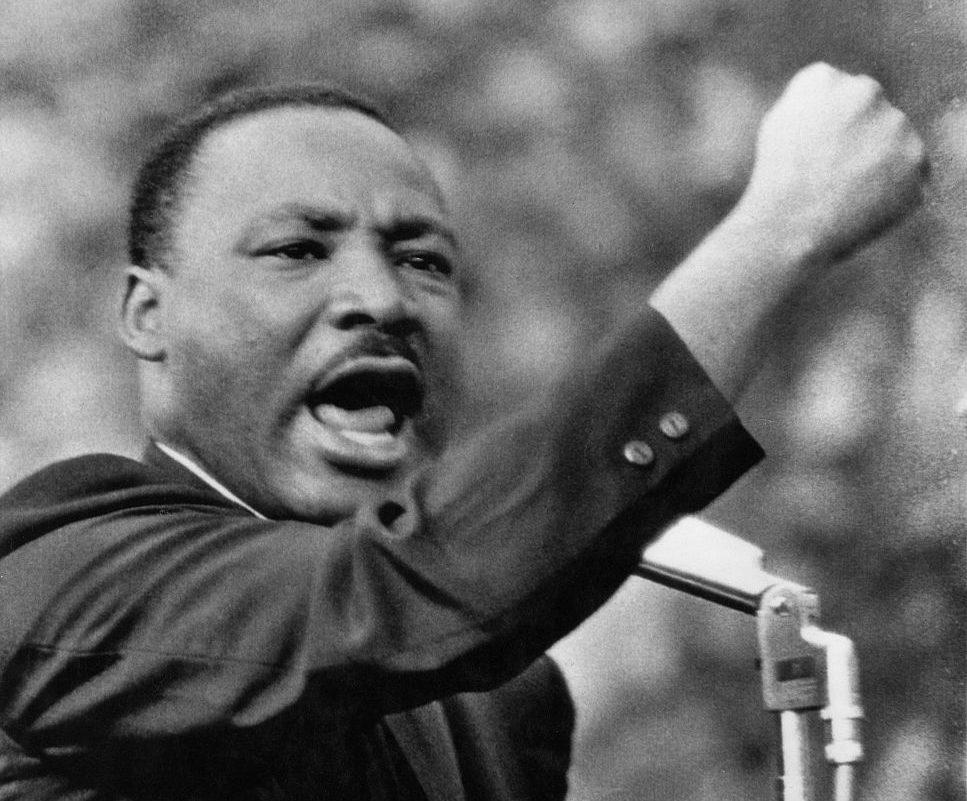
Recent Highlights
1
Pentagon threatens Anthropic with Defense Production Act over AI military use restrictions
Policy and Regulation

2
Google Gemini 3.1 Pro doubles reasoning score, beats rivals in key AI benchmarks
Technology

3
Anthropic accuses Chinese AI labs of stealing Claude through 24,000 fake accounts
Policy and Regulation





